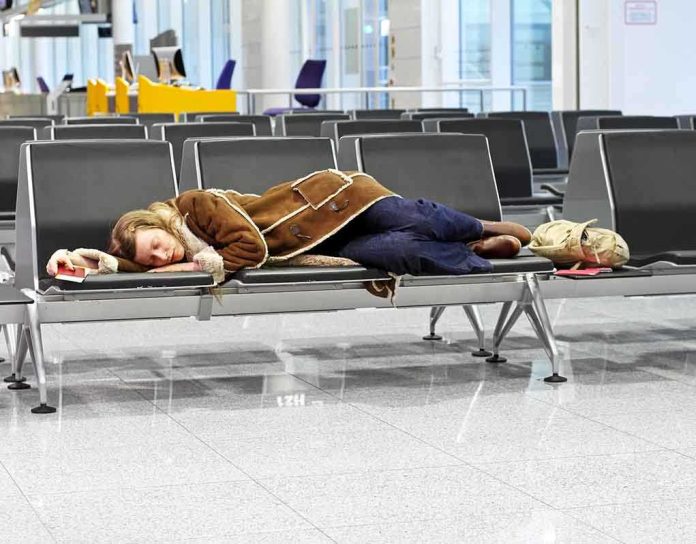
The federal shutdown drama intensifies as House Minority Leader Hakeem Jeffries stands firm against bipartisan calls to end the impasse, highlighting a deeper political rift.
Story Overview
- Hakeem Jeffries refuses a “clean” continuing resolution despite pressure.
- Major airlines and unions, traditionally Democratic allies, demand action.
- The shutdown severely disrupts air travel and federal services.
- Republicans label the situation a “Schumer-caused” shutdown.
Jeffries’ Intractable Stand
Hakeem Jeffries, House Minority Leader, stands resolute against adopting a Republican-endorsed “clean” continuing resolution aimed at reopening the government. Despite mounting pressure from major airlines, unions, and industry leaders, Jeffries, alongside Senate Minority Leader Chuck Schumer, demands additional policy concessions. The shutdown, now in its 30th day, continues to wreak havoc on air travel and federal services, showcasing the deeply entrenched partisan divides that plague Washington.
This relentless stance reflects deeper motivations within Democratic leadership, as they push for broader policy agreements, including safeguards for ACA subsidies and SNAP funding. On the other side, Republicans and industry stakeholders urge swift passage of a CR to restore government operations, emphasizing the immediate need to alleviate disruptions affecting millions.
Airlines and Unions Break Ranks
Traditionally supportive of Democratic initiatives, major airlines and unions now find themselves at odds with party leaders. Publicly calling for an immediate resolution, these stakeholders highlight the severe operational and financial strains caused by the prolonged shutdown. Executives from United Airlines and others have taken to the media, underscoring the economic stress and safety risks exacerbating daily. This rare defection underscores the high stakes involved, with industries and communities nationwide bearing the brunt of political gridlock.
The airline industry’s demands are amplified by the Department of Transportation’s warnings of funding lapses for essential services, further intensifying the urgency. Amidst this, the Democrats’ refusal to relent without policy concessions paints a complex picture of political strategy versus practical necessity.
Unyielding Political Dynamics
The shutdown, a product of entrenched partisan disputes, reveals a broader political struggle that transcends immediate fiscal concerns. Democrats control the Senate minority, wielding significant influence to block resolutions they deem insufficient. Meanwhile, Republicans, backed by industry calls, push for a resolution devoid of additional policy measures. This power dynamic creates a legislative stalemate, with both sides entrenched in their positions, and the public caught in the crossfire.
As the shutdown drags on, the economic, social, and political costs mount. The aviation industry faces unprecedented challenges, with threats to operational stability and employee welfare. For rural communities reliant on air connectivity, the stakes are even higher, risking vital links to broader markets and services.
Potential Long-term Consequences
The prolonged shutdown not only disrupts current operations but also sets concerning precedents for future government funding battles. Public trust in governmental institutions erodes with each passing day, as the specter of shutdowns as political leverage looms larger. The aviation sector’s resilience is tested, with potential long-term impacts on workforce morale and recruitment.
As this political saga unfolds, experts warn of the broader implications for governance and policy-making in America. The increasing use of shutdowns as a bargaining tool raises questions about the sustainability of such tactics, especially when essential services and the economy are at stake. The situation remains fluid, with no immediate resolution in sight, leaving stakeholders anxious and the public weary.
Sources:
U.S. Department of Transportation



